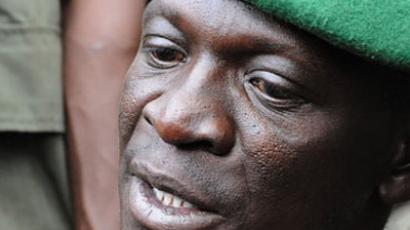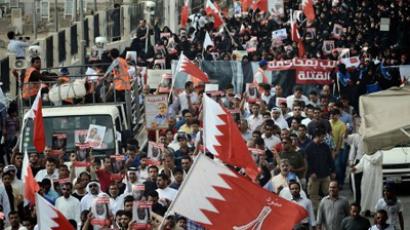Mali coup: African Spring
The situation in Mali remains tense as neighbors threaten sanctions against the country taken over by a military junta. The coup is just one of the many destabilizing results of what has been called the African Spring, experts believe.
The junta said it began the mutiny against its government because President Toure was unable to handle the uprising of Tuareg tribes in the north of the country.The Mali Tuareg separatists’ National Movement for the Liberation of Azawad (MNLA) started a rebellion in January seeking independence. The group is rumored to have members who fought in the 2011 civil war in Libya, both in Muammar Gaddafi’s army and with rebel troops. Some of the arms from Gaddafi’s depots and NATO’s supply drops ended up in their hands, which may have triggered the insurgence.“Many of the rebels were coming back from Libya very well armed with pickup trucks and machine guns and other ammunition. Essentially it’s the failed policy of President Obama and the West together with the economic crises which are the main causes for this rebellion,” Lawrence Freeman from Executive Intelligence Review magazine told RT.The political expert says the West’s zeal in ousting Gaddafi is now backfiring on its ally Mali.“Mali was an area which the US put a lot of military backing into. They were trying to fight the various sources known as ‘the al-Qaeda of the Maghreb’. And then you have a low-level officer carry out a coup. So you have to wonder how strong the government was,” he said.Lawrence says the Tuareg uprising and the military coup in Mali signify the continuation of the turmoil in the African continent. The causes of the dissent, which include staggering poverty and people’s lack of control over their lives, are still there in many African countries, regardless of whether they are Western allies or not. Meanwhile Mali was suspended from the Economic Community of West African States (ECOWAS), an eight country alliance, following the coup. ECOWAS and the African Union sent its delegations to Mali to assess the situation there on the ground.ECOWAS has put its troops on standby and is ready to intervene, should the situation in Mali deteriorate. Mali’s capital Bamako saw some looting and violence following the coup, but apparently the junta led by Captain Amadou Haya Sanogo has managed to whip up some public support. On Wednesday thousands of Babako residents walked its streets in support of the new leadership.Mali’s ousted President Amadou Toumani Toure got in touch with AFP and said he was well and still in the capital.














